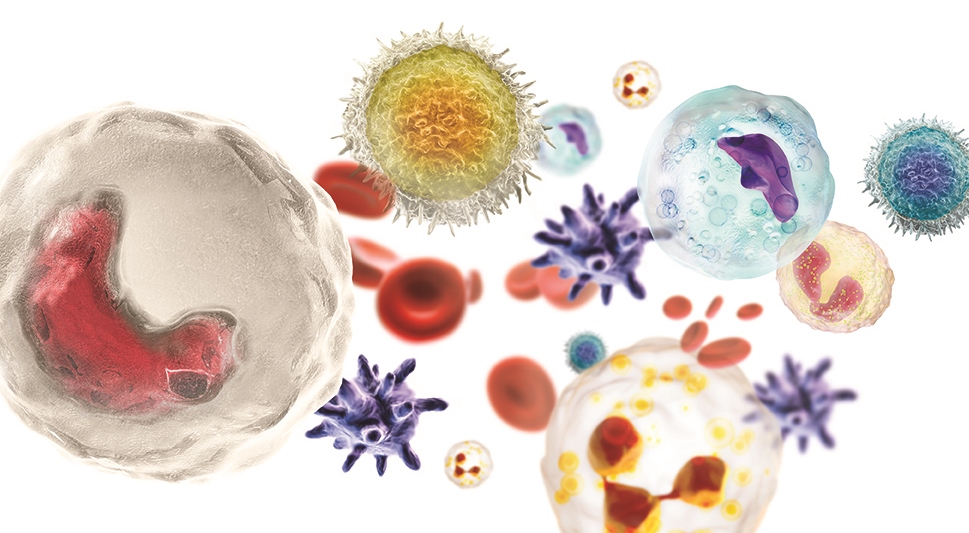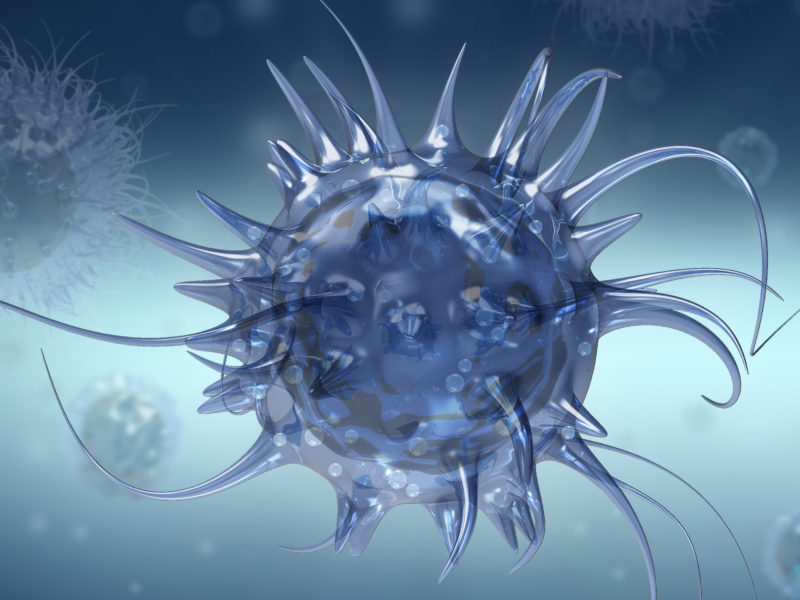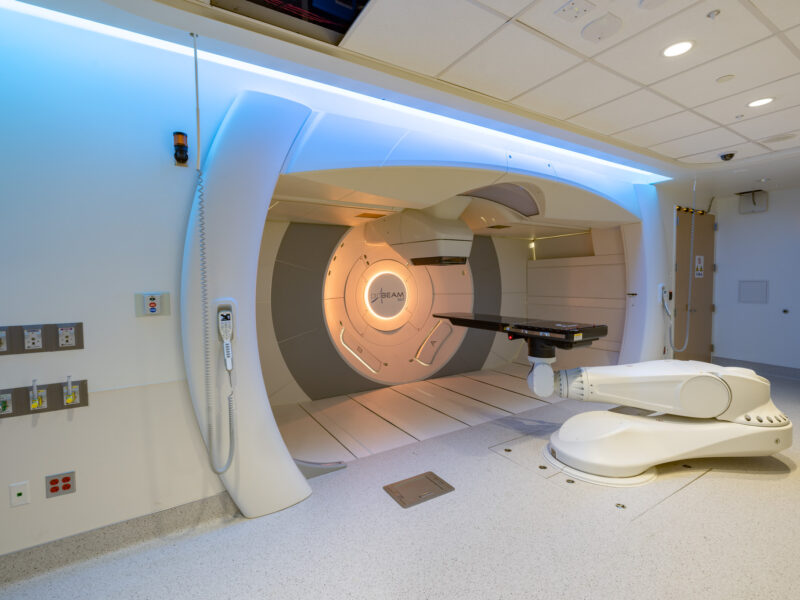Modifying NK Cells With CRISPR/Cas9
Modifying NK Cells With CRISPR/Cas9 https://pediatricsnationwide.org/wp-content/uploads/2015/10/Pediatrics_Nationwide_feature_extra-art.jpg 969 533 Mary Bates, PhD Mary Bates, PhD https://secure.gravatar.com/avatar/c6233ca2b7754ab7c4c820e14eb518c8?s=96&d=mm&r=g- April 02, 2021
- Mary Bates, PhD

A proof-of-concept study shows success in modifying NK cells for multiple myeloma.
In a new proof-of-concept study, researchers from Nationwide Children’s Hospital used CRISPR/Cas9 technology to genetically modify natural killer immune cells, which they then showed are able to address a recognized hurdle in immunotherapy of multiple myeloma.
“It was an amazing feeling when we saw the first result,” says Meisam Naeimi Kararoudi, DVM, PhD, a principal investigator in the Center for Childhood Cancer and Blood Diseases at Nationwide Children’s and co-author of the study. “The ability to easily genetically engineer these cells will usher in a new era in cancer immunotherapy.”
Natural killer (NK) immune cells are the first responders to most viral infections. With genetic modifications, they could also serve as valuable cancer fighters. However, NK cells are historically resistant to conventional methods of gene editing that use viral vectors.
To use the CRISPR/Cas 9 system on these cells without viral vectors, Dr. Naeimi Kararoudi used short pieces of pre-made guide RNA and the Cas9 protein to get past NK cells’ defenses to intentionally knockout specific genes.
In a clinically relevant application of this approach, Dr. Naeimi Kararoudi and colleagues focused on a protein called CD38. A monoclonal antibody targeting CD38, daratumumab, is used to treat patients with multiple myeloma; however, the response is transient in most cases. One problem is that daratumumab binds to the CD38 protein not just on multiple myeloma cells, but on NK cells, as well, resulting in the NK cells killing each other.
“When we used CRISPR to knockout CD38 from the surface of NK cells, we found they did not kill each other at all anymore; they killed significantly more cancer cells,” says Dr. Naeimi Kararoudi, who is also a research assistant professor of pediatrics at The Ohio State University College of Medicine.
The CD38 knockout NK cells showed superior persistence in immune-deficient mice pretreated with daratumumab and enhanced activity against CD38-expressing multiple myeloma cell lines and primary multiple myeloma cells. The findings provide proof-of-concept that adoptive immunotherapy using these knockout NK cells has the potential to strengthen the therapeutic effect of daratumumab against multiple myeloma.
This novel approach for engineering NK cells was licensed by Kiadis Pharma, but also caught the attention of Sanofi. The pharmaceutical company has its own FDA-approved CD38 monoclonal antibody therapy but was encountering the same problems with NK cells that daratumumab caused. Sanofi sublicensed the protocol to use these CD38 knockout NK cells with their therapy for multiple myeloma and, in a deal to be finalized in April, subsequently bought Kiadis.
Multiple myeloma is just the tip of the iceberg, according to co-author Dean Lee, MD, PhD, director of the Cellular Therapy and Cancer Immunology Program at Nationwide Children’s and The Ohio State University Comprehensive Cancer Center-Arthur G. James Cancer Hospital and Richard J. Solove Research Institute.
“This particular knockout is applicable to other types of leukemia and lymphoma, but our study is also proof-of-principle for knocking out any gene in NK cells,” says Dr. Lee.
“We have a long list of genes that we could edit out of an NK cell that would improve its function, such as those involved in inhibitory pathways or immune system checkpoints.”
Dr. Lee, who is also a professor of pediatrics at The Ohio State University College of Medicine, says Nationwide Children’s is scheduled to open a new GMP facility for cell therapy products next month.
“We are working on how to move this CRISPR-edited CD38 knockout NK cell into the clinic,” he says. “It is very likely that we will do that manufacturing here in our new cell therapy manufacturing space.”
Reference:
Naeimi Kararoudi M, Nagai Y, Elmas E, de Souza Fernandes Pereira M, Ali SA, Imus PH, Wethington D, Borrello IM, Lee DA, Ghiaur G. CD38 deletion of human primary NK cells eliminates daratumumab-induced fratricide and boosts their effector activity. Blood. 2020 Nov 19;136(21):2416-2427. doi: 10.1182/blood.2020006200.
Image credit: Nationwide Children’s
About the author
Mary a freelance science writer and blogger based in Boston. Her favorite topics include biology, psychology, neuroscience, ecology, and animal behavior. She has a BA in Biology-Psychology with a minor in English from Skidmore College in Saratoga Springs, NY, and a PhD from Brown University, where she researched bat echolocation and bullfrog chorusing.
-
Mary Bates, PhDhttps://pediatricsnationwide.org/author/mary-bates-phd/December 27, 2016
-
Mary Bates, PhDhttps://pediatricsnationwide.org/author/mary-bates-phd/
-
Mary Bates, PhDhttps://pediatricsnationwide.org/author/mary-bates-phd/
-
Mary Bates, PhDhttps://pediatricsnationwide.org/author/mary-bates-phd/






